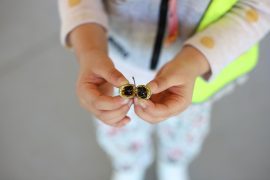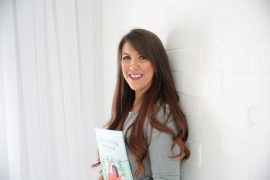By Hannah Schenker
While it may seem like your baby is happier eating a book than listening to you read it to them, persevere! Research suggests positive long-term outcomes from reading aloud to babies as young as six months old. That’s right: reading to your baby leads to stronger vocabulary and better literacy skills later on, so get out the Dr. Seuss. But it’s not just about how many stories you read – how you read is important too.
This new research was presented at the Pediatric Academic Societies Meeting on 8 May 2017. The researchers studied more than 260 parent-child pairs from birth to starting school. They checked in at 6, 14 and 24 months old, with parents reporting how often they read to their child, how many books they had in the house, and the quality of reading (Did they talk about the book? Point to the pictures? Ask questions about the story? Discuss the emotions and characters in the story?).
After adjusting for variables like socioeconomic status, the researchers found that yes – the quantity and quality of reading to young children does affect their long-term literacy, predicting the size of their vocabulary and reading skills by the time they reach 4 and a half years old.
“These findings are exciting because they suggest that reading to young children, beginning even in early infancy, has a lasting effect on language, literacy and early reading skills,” said Carolyn Cates, PhD, lead author and research assistant professor in the department of pediatrics at New York University (NYU) School of Medicine. “What they’re learning when you read with them as infants,” she said, “still has an effect four years later when they’re about to begin elementary school.”











